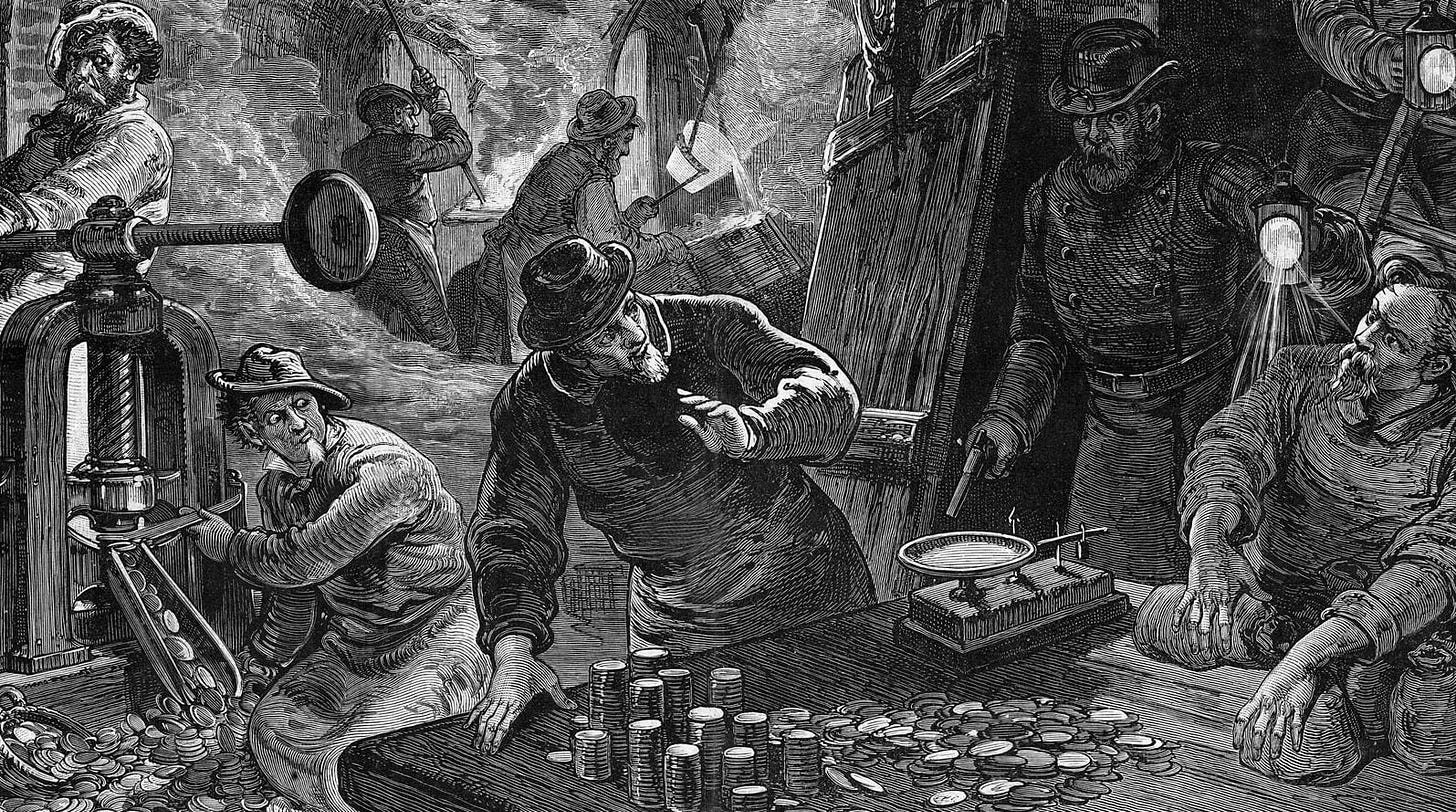How the Secret Service Found Its True Mission
A story, quote, and lesson about how our path changes when opportunity knocks
You never know where you’re going to end up.
When most people hear “Secret Service,” they picture earpieces, black suits, and the President walking through a crowd under a shield of silent, watchful agents. But that wasn’t what the organization was created to do.
Not even close.
In 1865, right as the Civil War ended, the U.S. economy was drowning in fake money. Nearly one-third of all currency circulating in America was counterfeit.
The government needed a solution, and fast. So the Treasury Department formed a small, specialized team whose sole mission was to stop the counterfeiting crisis before it destroyed the fragile post-war economy.
That team became the Secret Service. No guarding presidents. No motorcades. No high-profile protection. It was accountants, investigators, and financial operatives chasing down fraud. That’s it.

But then, life, like it often does, opened a door no one expected.
In 1901, President William McKinley was assassinated. It was the third presidential assassination in less than 40 years. Something had to change.
Congress made a historic decision: the Secret Service, which had built a reputation for discipline, adaptability, and quiet precision, would take on an additional mission: protecting the President of the United States.
An organization born to defend the dollar suddenly became the protector of the nation’s most powerful people. Not because it planned to pivot, but because the world changed… and it chose to evolve with it.
“We have an integrated mission of protection and investigations to ensure the safety and security of our protectees, key locations, and events of national significance. We also protect the integrity of our currency and investigate crimes against the U.S. financial system committed by criminals around the world and in cyberspace.”
— United States Secret Service Mission Statement
The Secret Service didn’t cling to its original purpose. It adapted. It embraced a new path. It stepped into a role that would come to define its identity for more than a century.
Most of us begin with a plan, an idea of who we think we’re going to be. But life rarely sticks to the blueprint. Opportunities appear where you didn’t expect them. A job changes direction. A setback opens a new door. Someone sees something in you that you hadn’t yet recognized in yourself.
The key isn’t predicting every twist. The key is being open enough to walk through the doors when they show up.
Your final destination may look nothing like the starting point you had in mind. But that doesn’t mean you failed your plan. It may mean you found your potential.
So now I ask you:
Where in your life might an unexpected path be pointing you toward something greater, if only you were willing to follow it?



I love this it’s so interesting to look at life that way. I will always try to stay open for when new doors arrive in my life.
The importance of letting God be your guide. He speaks to us by different happenings in our life.